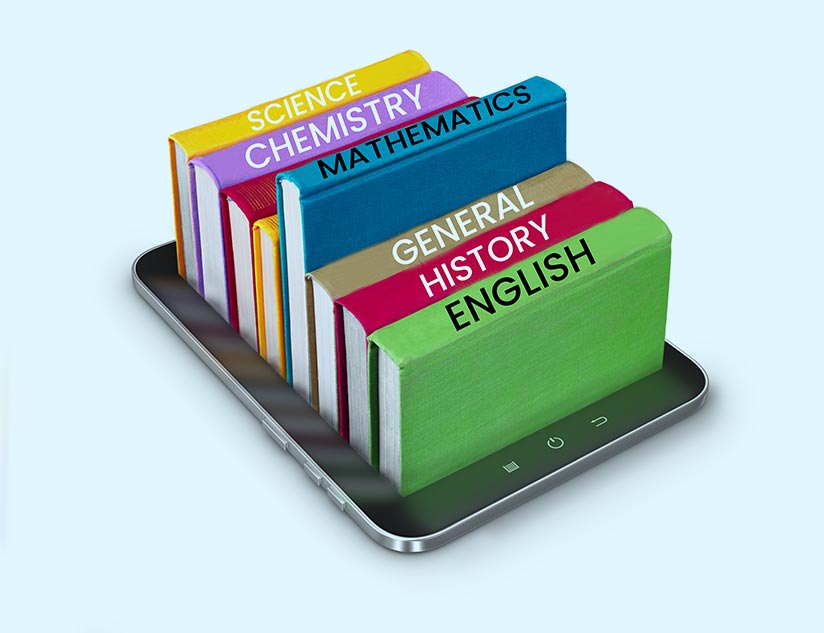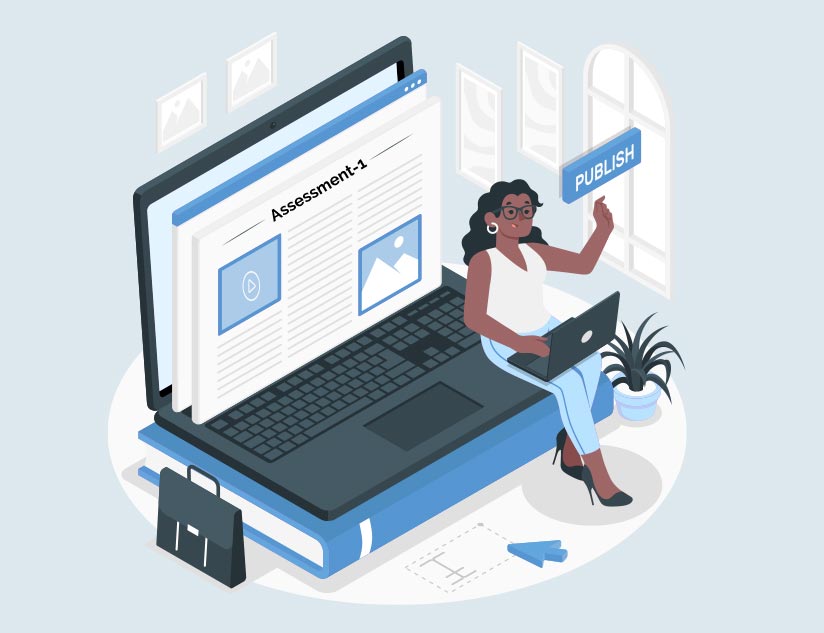Can Going Digital Help the Education Sector Optimize Monetization?
January 13th, 2020
The 21st century has introduced new challenges for educational publishers. Learning today has developed from teaching students the 3 R’s and gearing towards focusing on the 4 C’s – Critical thinking, Collaboration, Communication, and Creativity.
The need for access to content online across various devices poses difficulties for print publishers. Print publishing no longer delivers what today’s learners are looking for. They demand adaptive, personalized learning experiences. They seek involvement in the learning experience rather than being passive recipients of the information. All this makes it a huge challenge for publishers to continue with their legacy businesses.
These challenges have led to the sales of print textbooks flatlining, leaving going digital to be the best option for the education sector. The decrease in sales is believed to be caused by the rise of digital content in education. This not only makes learning more accessible but also reduces costs for students; making education more inclusive.
In fact, the publishing company well known as Pearson confirmed that in 2020, they would update just 100 of the 1,500 titles that are currently in print, which is a decrease of 400 titles from 2019. This is part of the process of one of the largest educational print publishers gradually moving away from print and towards the digital medium.
Pearson also expects the gap between digital and print to widen from 55%-45% to 65%-35% by the end of 2019. Michael Spinella, the executive editor of the Textbook and Academic Association also stated that textbook authors are finding it difficult to even secure a textbook contract with a major publishing house.
However, the key challenge brought on by the digital revolution for the education sector is monetization of content while ensuring the protection of intellectual property rights.
How Digital Migration Helps Monetization
Apart from making content more relevant for today’s students, going digital can also help the education sector in optimizing monetization. Here’s how:
Robust Digital Rights Management
The key threat to monetization comes from content piracy online. However, with robust tools for digital rights management (DRM), piracy can be prevented. With DRM tools, the education sector can gain control over who has access to their content. Protected via encryption, content can then be distributed through a subscription model which allows the content owner to set the time-frame for access; as well as the number of devices on which the content can be accessed. Some of the major advantages of DRM are:
- Only those who have paid for the license can gain access to the content. The DRM license ensures secure promotion, sale, and distribution of digital content.
- Educational publishers can ensure that content is available for only specific periods of time.
- It can help prevent users from printing, screen grabbing and copying the digital content.
- It allows publishers to restrict the number of devices that can access educational content.
- Digital Rights Management can grant teachers, schools and individuals separate access codes and licenses to go along with the e-Books.
- DRM also provides a range of analytics about content consumption patterns.
Accessibility
Digital content is much more accessible than print textbooks. There are more than 3.2 billion smartphone users in the world. In addition, 45% of teens say that they are constantly on their smartphones. Being able to access content on one’s preferred device displays an increased demand for the content, which translates into better monetization. Publishers can make their content even more accessible by using metadata. This improves the search engine friendliness of the content, allowing the user to easily find what they are looking for.
The digital content can also be provided in a number of different formats such as courses, e-Books, simulations, videos, etc., to meet the needs of all kinds of users. The content can also be made more inclusive, increasing the number of users.
Use of Authoring Tools
With the help of white label solutions and authoring tools, the speed of creating, modifying and distributing content can be greatly increased. This enables publishers to present their content to their audience quickly, reducing the time it takes to market. In fact, the time taken to edit and update content is much lower in the case of digital publishing.
The time spent on creating layouts, collecting media and outsourcing tasks can also be minimized with the help of authoring tools. These tools provide everything you need to create informative and interesting learning content such as templates, interactions and features.
Makes Compliance Easy
The education sector has its own set of regulations to comply with. Being non-compliant is followed by severe consequences, the least of which is monetary fines. With the help of advanced learning platforms, keeping your content compliant becomes easy. These solutions allow you to be compliant with TinCan API, QTI, LTI, COPPA, WCAG and more.
In addition, the digital avenue allows for the creation of highly interactive, engaging, and personalized learning experiences. With e-learning, even the use of gaming in education has become possible. This has transformed subjects that have traditionally been dreaded by students into enjoyable, fun activities.
With the move to digital learning platforms, the education sector can now look forward to being able to publish and monetize content much more easily and quickly, while ensuring a wide reach. Digital publishing helps speed up the entire pre-publishing process, while also making it quick and easy to update information. No longer does the education sector need to wait for a new edition of a textbook to be finally published in order to provide students the most relevant content.















